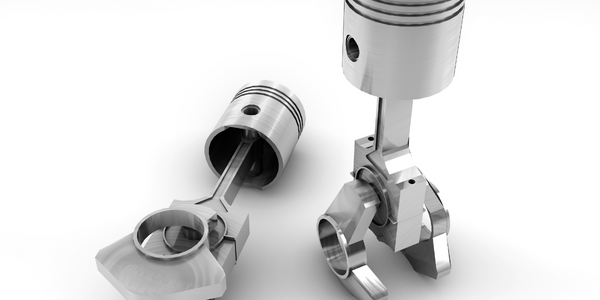Technology Category
- Functional Applications - Inventory Management Systems
- Platform as a Service (PaaS) - Application Development Platforms
Applicable Functions
- Procurement
- Sales & Marketing
Use Cases
- Picking, Sorting & Positioning
- Visual Quality Detection
Services
- System Integration
- Testing & Certification
About The Customer
Boldify is a beauty and personal care brand with a team of 1-25 people. The company specializes in products that combat hair loss, a common issue faced by many individuals. Boldify was looking to scale their online business and prepare for the challenges of expansion. They needed a platform that could seamlessly integrate with their existing Amazon and Shopify channels and also accommodate future expansion into wholesale channels like Target. The company's operations involve core products made in the US and boxes made in China, which are sent to FBA. Boldify's co-founder, Mike Viskovich, and Operations Manager, Luciana Fistarol, were instrumental in the search for a suitable platform and the subsequent integration of Skubana into their operations.
The Challenge
Boldify, a beauty and personal care brand, was facing challenges in scaling their online business. They were looking for a robust inventory and order solution that could seamlessly integrate with their existing Amazon and Shopify channels, and also accommodate future expansion into wholesale channels like Target. The co-founder, Mike Viskovich, had tried other platforms but was left unsatisfied due to their lack of quality customer support. He needed a platform that could not only integrate Amazon and Shopify quickly and easily but also provide quality customer support. Boldify's operations involved core products made in the US and boxes made in China, which were sent to FBA. This setup seemed to confuse other support teams, adding to the challenges faced by the company.
The Solution
Boldify found their solution in Skubana, a platform that not only integrated well with their existing channels but also provided quality customer support. Skubana's team was able to understand and answer Boldify's inventory-related questions, a stark contrast to the experiences Viskovich had with other platforms. The structure and layout of Skubana were exactly what Boldify was looking for. The platform's Orderbots and prebuilt integrations, like Amazon, worked seamlessly. The most valuable feature of Skubana for Boldify was its open API. Luciana Fistarol, the Operations Manager of Boldify, appreciated the platform's flexibility. Skubana's open API allowed Boldify to interpret data from Shopify, Amazon, and three different 3PLs, and quickly change order rules. This feature enabled Boldify to adapt to increasing complexity and the need to shift tactics rapidly as the business grew.
Operational Impact
Quantitative Benefit

Case Study missing?
Start adding your own!
Register with your work email and create a new case study profile for your business.
Related Case Studies.

Case Study
DHL Supply Chain Growing Use of AR Glasses
A picker with an RF scanner is constantly looking at the gun to get pick commands, hitting the confirm button and doing things in sequential fashion which is time consuming. Warehouse operations costs add up to 20% of the total logistics costs for DHL.

Case Study
Rapid and Simple Installation Provides Access to Critical Data
The customer needed to monitor non-contact alignment and non-contact process temperature in different positions along a 100-meter production line. Space around the line is tight and operators and forklift trucks are passing by constantly. Installation of correctly routed cables from sensors back to the control station would have been expensive and would have taken too long and caused too much disruption to ongoing operations.
Case Study
Real-Time IoT Tracking and Visualization Improve Manufacturing
Shimane Fujitsu, a wholly-owned subsidiary of Fujitsu and a leading manufacturer of business notebooks and tablets, set out to improve processes where factory inspections found product errors. Prioritizing product rework based on shipping date was challenging, and it caused Shimane Fujitsu to incur additional shipping fees. The company needed a way to collect data to better track the location of products in the rework cycle as well as monitor progress in real time. The collected data would also help process analysis for future improvements.

Case Study
Automatic Vision Inspection Solution for Product Traceability
With greater market demand for food safety, traceability is receiving increasingly more attention in the food and beverage industry as well as the packaging industry. One of the world's leading providers of beverage containers required a system to identify bar codes and alphanumeric characters on ink-jet-printed labels at a run rate of 7 units and minimum 99.9% accuracy. Since there were few engineers in the factory, the customer sought to implement a reliable system with an easy-to-use GUI for workers with a less technical background.

Case Study
Automated Inspection of Axial Piston Motors
Earth moving machines require an immense energy source to provide the power they need for use within civil engineering works. ‘Hydraulic Motors’ allow this power to be applied to enable the machines movement and in addition ‘Control Valves’ also provide the operator with the precise feel and control required to undertake the necessary tasks needed for such machines, including trenching, rock breaking and demolition. These same motors are also used in cranes, wheel loaders and general construction equipment. Though not a new product, the designs of such motors and control valves have been around a few decades, the overall method for manufacture has changed rapidly over the last few years to take account of the need for more modular designs, manufacture and just-in-time manufacturing. Kawasaki Precision Machinery (UK) Ltd based in Plymouth, UK is one of the leading manufacturers of such motors and pumps. They approached Industrial Vision Systems Ltd to come up with a solution to provide automated inspection of such pumps for their semi-automated assembly process. The pumps requiring inspection are at a sub-assembly stage when they are due for the inspection process to take place. Due to the highly modular nature of the construction each part of the pump can have many different derivatives which overall have a different effect on the pump in industrial use. It is therefore critical for the manufacturing process to check all components are the correct type and number for the construction of the pump to begin. Once built it is difficult and costly to rework such units if a fault is detected later in the manufacturing process, therefore automated visual inspection is critical for the success in building quality motors and pumps.
Case Study
AstraZeneca Enhances Product Traceability with Honeywell Forge
AstraZeneca, a global biopharmaceutical business, was faced with the challenge of complying with an increasing number of country-specific regulations that required products to be traceable throughout the supply chain. This necessitated changes in existing warehouse processes and the provision of equipment to warehouse and production staff to efficiently record product movement down to the sales pack. AstraZeneca also aimed to provide inspectors and sales representatives with the means to verify product status directly in the field. A significant concern was the potential impact of a single centralized database on the performance of scanning devices used in the warehouse, with an instantaneous response being a key requirement. Accuracy and the ability to verify material batch quantities against outbound SAP deliveries were also crucial.






